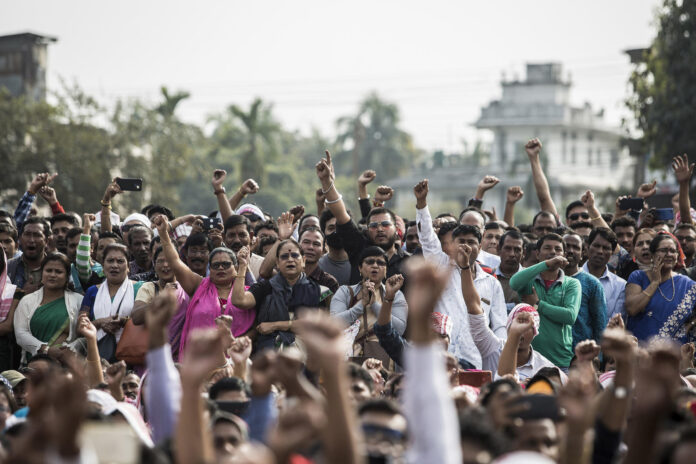Author: Nandini Deo
Affiliation: Lehigh University
Organization/Publisher: Sage Journals (Asian Journal of Comparative Politics)
Date/Place: March 18, 2020/ USA
Type of Literature: Journal Article
Number of Pages: 15
Link: https://journals.sagepub.com/doi/full/10.1177/2057891119898523
Keywords: Fundamentalism, Gender, India, Nationalism, Pakistan, Religion, Sri Lanka
Brief:
The article argues that the term “politics of fundamentalism” in South Asia is based on the association of religion and women’s rights, but that debates about women and the role of religion need to be re-examined using a framework of postcolonial nationalism. The common assertion today is that public religion (Islam, Hinduism, and Buddhism) is an anti-modern force, and that its preoccupation with gender is a source of conflict in the South Asian region. The author mentions however that the dominant force influencing politics in the region is the post-colonial project of nationalism, using different techniques of modernizing and adapting traditional societies to the nation-state system including labeling religion and gender as a catalyst. The British colonies inherited a set of public/private distinctions based on liberal Enlightenment principles, and a set based on its nationalist project. For example, the nationalistic reforms of the BJP government in India, namely the National Registry of Citizens, the Citizenship Bill, and the revocation of the special status of Kashmir, primarily target the other minorities to strengthen the Hindutva nationalism. And in Pakistan, the controversy of Hudood ordinances (Islamification package) initiated by Zulfiqar Ali Bhutto outflanked the religious opposition, which were then adopted by Military dictator Zia-ul-Haq to get the public support to legitimize his intervention. The article also provides examples from Sri Lanka. The author concludes that the religious categories being practiced now in South Asia are in many ways a creation of the colonial orientalist that has been co-created by colonial missionaries and anti-colonial elites. Therefore, it is not useful to study religion and politics through the lens of religious fundamentalism, but rather through the lens of nationalism and nation-building by the state.
By: Razia Wadood, CIGA Senior Research Associate




